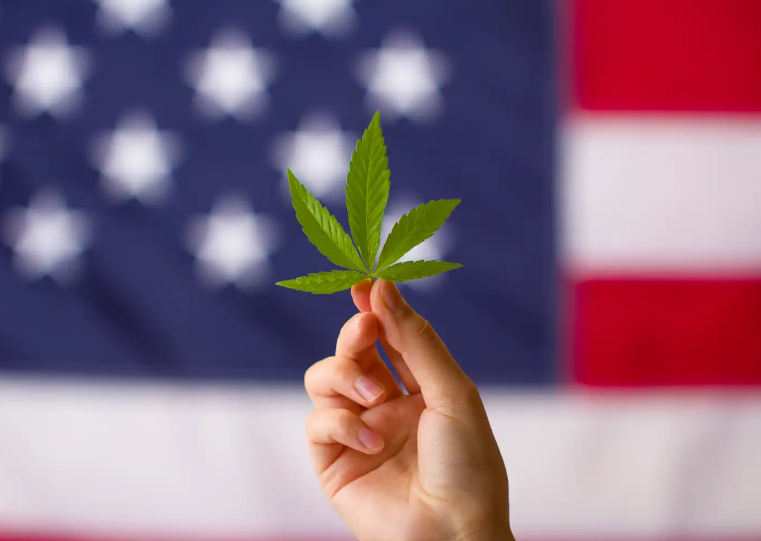House Approves Measures to Expand Medical Cannabis Access for Veterans and Fund Psychedelic Research
WASHINGTON, D.C. — In a significant move for veterans’ healthcare and research into therapeutic substances, the U.S. House of Representatives has greenlit amendments to a substantial spending bill. The amendments would enable U.S. Department of Veterans Affairs (VA) doctors to recommend medical cannabis to military veterans and encourage research into substances like psilocybin and MDMA.
The House Rules Committee swiftly made way for floor consideration, leading to the approval of the measures on Wednesday. The amendments are now advancing as part of the appropriations legislation covering Military Construction, Veterans Affairs, and Related Agencies (MilCon/VA).
The medical cannabis measure, sponsored by the co-chairs of the Congressional Cannabis Caucus—Representatives Brian Mast (R-FL), Earl Blumenauer (D-OR), Dave Joyce (R-OH), and Barbara Lee (D-CA)—received unanimous support, passing in a voice vote. An additional endorsement came from Representatives Jim McGovern (D-MA) and Matt Gaetz (R-FL), who later cosponsored the amendment.
Specifically, the amendment aims to prohibit the use of VA funds to enforce provisions of an existing directive that prevents doctors from recommending medical cannabis to veterans. The proposal addresses the hurdles veterans face in obtaining information about available medical treatment options, hindering their access to potentially beneficial cannabis-based therapies.
Representative Mast highlighted the challenges veterans encounter when dealing with the VA’s restrictive policies. He expressed concerns over the lack of access to medical treatment options and urged greater collaboration between veterans and their healthcare providers.
Echoing Mast’s sentiments, Representative Blumenauer emphasized the powerful impact of medical cannabis in alleviating veterans’ physical and psychological trauma. However, the current VA regulations hinder veterans from incorporating cannabis into their treatment plans, compelling them to seek alternative avenues for care.
Representative Joyce echoed the call for accessible treatments, underscoring the responsibility to aid veterans in accessing medical care for both physical and mental challenges.
Despite objections raised by Representative Debbie Wasserman Schultz (D-FL) and Representative John Carter (R-TX) on practical grounds, no recorded vote was requested, allowing the measure to progress unopposed.
The amendments underwent revisions before the Rules Committee meeting, with adjustments differentiating it from a previously approved Senate Appropriations Committee amendment. Now, there will be bipartisan and bicameral discussions to determine the final language that will become law.
The legislation to enable VA doctors to recommend medical cannabis has gained traction in both chambers in recent sessions, but it has yet to be fully incorporated into law.
In a separate voice vote, the House also approved an amendment from Representatives Lou Correa (D-CA) and Jack Bergman (R-MI) that promotes research into the therapeutic potential of certain psychedelics. Bergman highlighted the need to explore treatments that could help veterans overcome post-traumatic stress disorder (PTSD) and other mental health challenges, expressing optimism about the amendment’s potential to offer life-saving therapies.
Moving forward, Democrats in the Senate are seeking to pass marijuana reform amendments through the National Defense Authorization Act (NDAA) version in their chamber. Senator Brian Schatz (D-HI) leads one such proposal, seeking to permit veterans’ use of medical cannabis in states where it is legal. The amendment would also protect doctors who discuss and recommend medical marijuana for veterans while encouraging VA support for clinical trials investigating cannabis’ therapeutic effects.
Meanwhile, House and Senate appropriators have approved annual spending bills that safeguard state medical cannabis programs while blocking Washington, D.C. from establishing a regulated marijuana sales system. The progressive moves mark a notable advancement in cannabis and psychedelic reform within the GOP-controlled House.


































